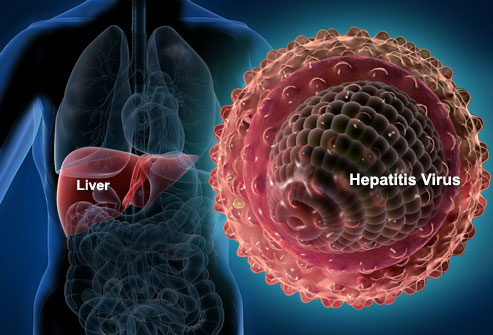Nowadays, Nigerians who lead sedentary lifestyles and who have adopted irregular food habits, appear to be more prone to liver diseases than others. Fatty liver disease is the result of a build-up of fat in the liver. If the liver is healthy, there should be little or no fat in it. However, sometimes, fat molecules begin to collect in the liver cells. Small amounts of fat in the liver usually cause no problems. However, when too much fat builds in this organ, it can pose a lot of health hazards.
With the exception of the brain, the liver is the most complex organ and second largest organ in the body. Its function is to process everything we eat or drink and filter harmful substances from the blood. This process is however interrupted when the liver contains too much fat. When fat accounts for more than five percent of the liver’s weight, the condition is described as fatty liver.
It is becoming one of the most common types of liver disease and it’s also one of the causes of liver cancer and cirrhosis. The disease may also occur due to metabolic problems such as diabetes, obesity or Hepatitis B and C infection.
A diagnosis of fatty liver could raise the alarm for an impending Type 2 diabetes. Fatty liver disease can lead to an inflamed liver and scarring. This is called alcoholic hepatitis if it’s caused by drinking too much alcohol and non-alcoholic steatohepatitis if it’s not related to alcohol.
Risk factors
From what I have explained so far, it should be obvious that fatty liver disease is a lifestyle disease. Most people living with this disease are fat, obese and they take alcohol.
It is more common in men and persons above the age of 50. Hypertensive and diabetic patients are most likely to be diagnosed with fatty liver as they are already battling with high blood sugar, glucose and cholesterol.
However, chemicals like methotrexate and tamoxifen can, but rarely cause non-alcoholic fatty liver.
Symptoms
Non-alcoholic fatty liver disease usually causes no signs and symptoms. When it does, they may include fatigue, poor appetite, pain in the upper right abdomen and weight loss.
Its complications include a swollen abdomen, itchy skin, vomiting of blood, confusion or poor memory, weakness and muscle wasting and jaundice.
Diagnosis
Fatty liver disease can sometimes be difficult to diagnose because one may not have any symptoms. There is no single test that can be used to diagnose fatty liver disease, but one may carry out some blood tests, liver biopsy, ultrasound, CT or MRI scan which help to create images of the liver. These images will show if there are any forms of fat in the liver.
Prevention
You may be able to prevent non-alcoholic fatty liver disease by maintaining a healthy weight for your height. Being active try to do at least 150 minutes of moderate exercise each week or 30 minutes of exercise for days.
Those who are obese or overweight, a gradual weight loss and regular exercise is advised. This not only helps with fatty liver but also it will help to reduce other risks of developing cardiovascular problems.
Limit or avoid alcoholic beverages because alcohol even in modest amounts may make fatty liver worse.
Eating healthy foods that are low in saturated fat and reduce your sugar intake to control your blood sugar. Manage your cholesterol levels and use liver supplements.
Conclusion
Alcoholic fatty liver disease is reversible. The liver should return to normal if one stops drinking alcohol. Even if one has been a heavy drinker for many years, reducing or stopping alcohol intake will have important short and long-term benefits on the liver and one’s overall health.


